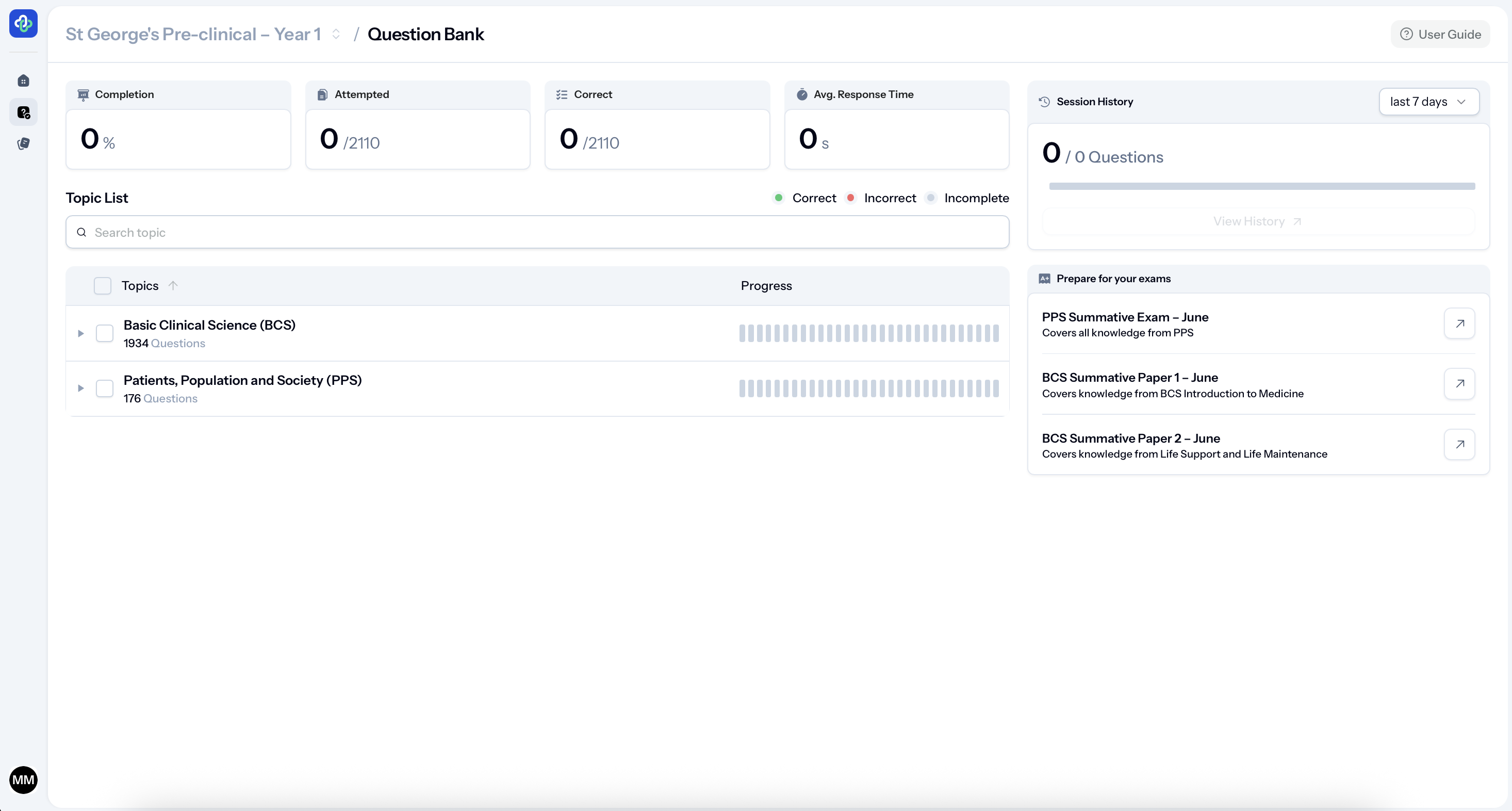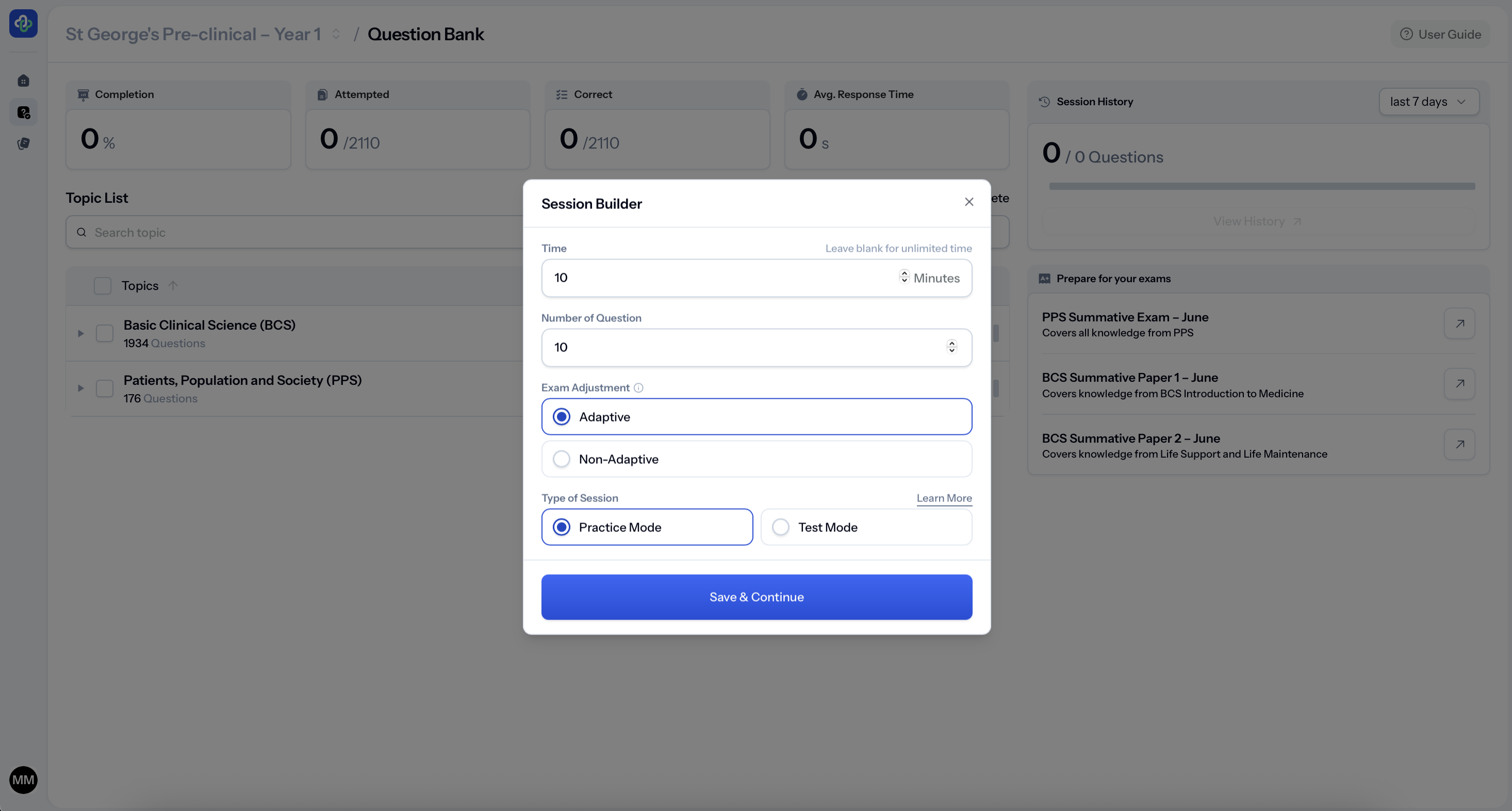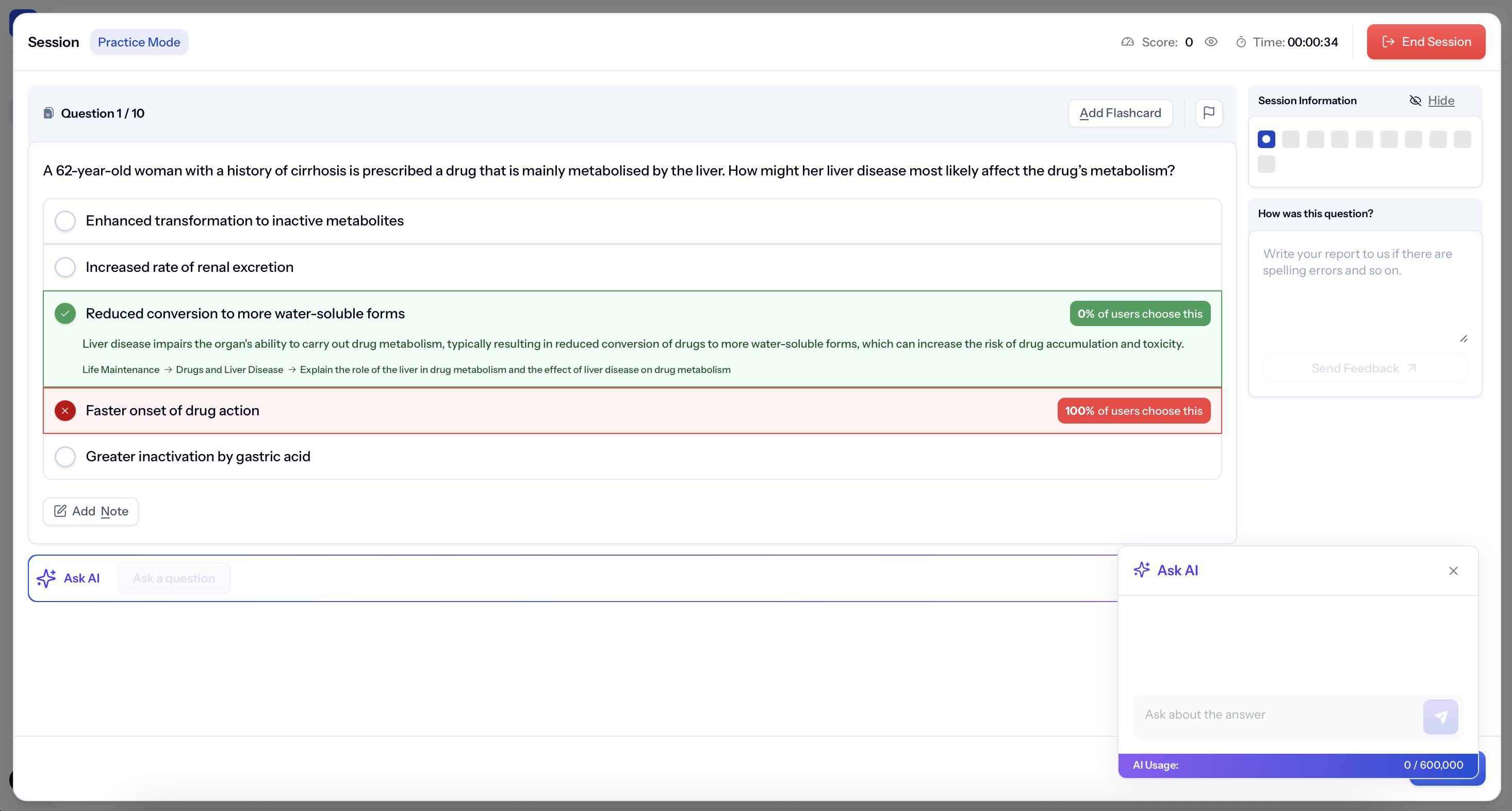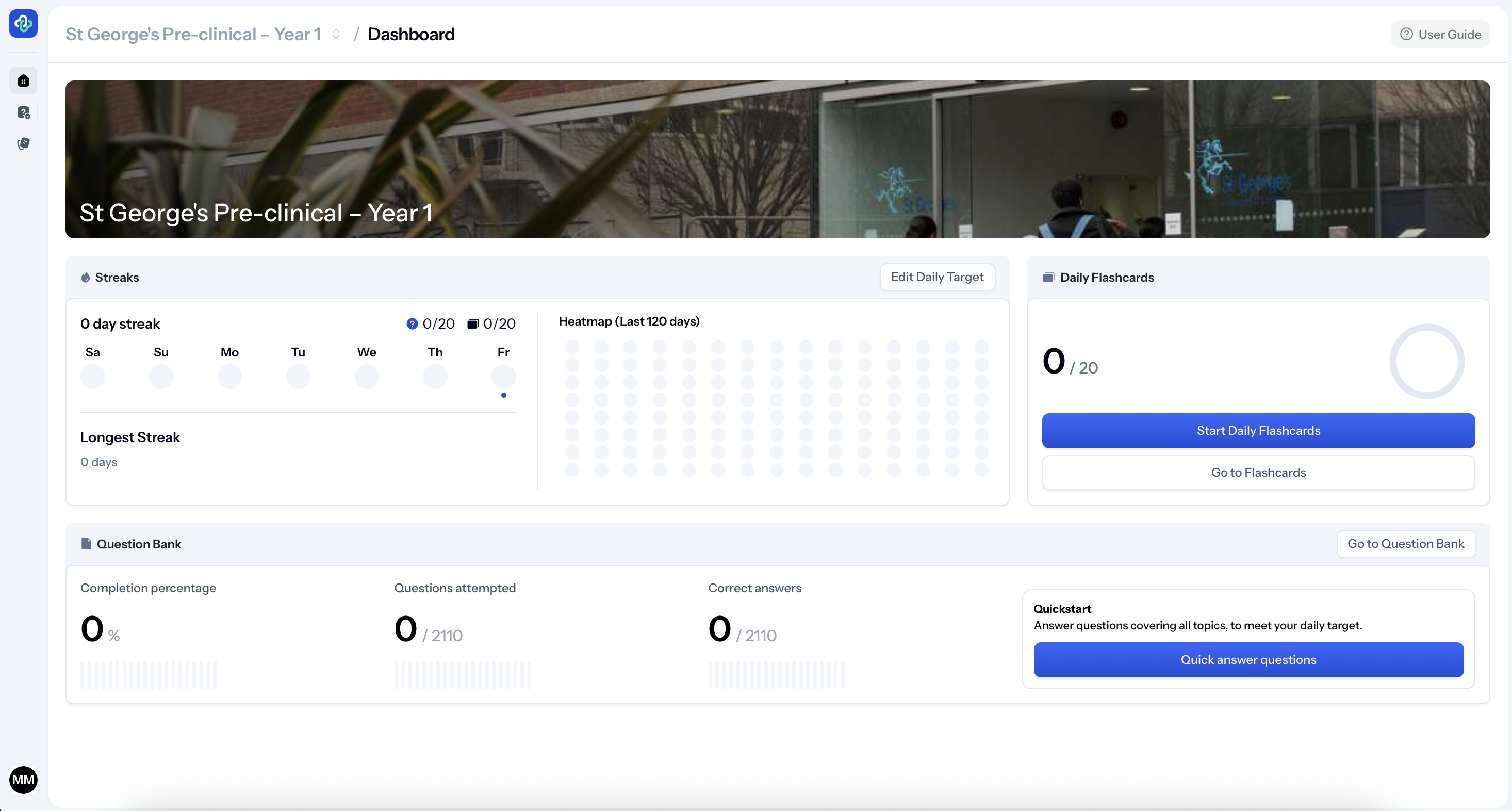-
Pre-clinical
If you have purchased a pre-clinical question bank for the 2025/26 academic year, login to your account here: app.medibuddy.co.ukYear 1-
-
Exams
-
Interviews
ST1 / CT / ACCS
- Internal Medicine Training
- Core Surgical Training
- Anaesthetics CT1 / ACCS
- Cardiothoracic Surgery ST1
- CSRH ST1
- Emergency Medicine ACCS
- GP Selection Centre
- Histopathology ST1
- Neurosurgery ST1
- Obs and Gynae ST1
- Ophthalmology ST1
- Paediatrics ST1
- Public Health Medicine ST1
- Radiology ST1
- Academic Clinical Fellowship
ST3- Clinical Oncology ST3
- Combined Infection Training ST3
- Dermatology ST3
- Emergency Medicine ST3
- ENT ST3
- General Surgery ST3
- Haematology ST3
- Intensive Care Medicine ST3
- Medical Oncology ST3
- Obs and Gynae ST3
- Paediatrics ST3
- Plastic Surgery ST3
- Trauma & Orthopaedic Surgery ST3
- Urology ST3
- Vascular Surgery ST3
- Academic Clinical Fellowship
-
Crash Courses
-
Professional Development
- Foundation Ranker
- Find Locum Work
Pre-clinical Year 1
- Aston
- Barts
- Birmingham
- Bristol
- Buckingham
- Cambridge
- Cardiff
- Dundee
- East Anglia, Norwich
- Edinburgh
- Exeter
- Glasgow
- Hull York
- Imperial
- KCL
- Lancaster
- Leeds
- Lincoln
- Liverpool
- Manchester
- Newcastle
- Nottingham
- Oxford
- Southampton
- St Andrews
- St George's
- UCL
- Aston
- Barts
- Bristol
- Buckingham
- Cambridge
- Central Lancashire
- Edinburgh
- Exeter
- Glasgow
- Lancaster
- Leeds
- Nottingham
- St Andrews
- St George's
- Internal Medicine Training
- Core Surgical Training
- Anaesthetics CT1 / ACCS
- Cardiothoracic Surgery ST1
- CSRH ST1
- Emergency Medicine ACCS
- GP Selection Centre
- Histopathology ST1
- Neurosurgery ST1
- Obs and Gynae ST1
- Ophthalmology ST1
- Paediatrics ST1
- Public Health Medicine ST1
- Radiology ST1
- Academic Clinical Fellowship
- Clinical Oncology ST3
- Combined Infection Training ST3
- Dermatology ST3
- Emergency Medicine ST3
- ENT ST3
- General Surgery ST3
- Haematology ST3
- Intensive Care Medicine ST3
- Medical Oncology ST3
- Obs and Gynae ST3
- Paediatrics ST3
- Plastic Surgery ST3
- Trauma & Orthopaedic Surgery ST3
- Urology ST3
- Vascular Surgery ST3
- Academic Clinical Fellowship
- Acute Internal Medicine ST4
- Anaesthetics ST4
- Cardiology ST4
- Emergency Medicine ST4
- Endocrinology and Diabetes Mellitus ST4
- Gastroenterology ST4
- Neurology ST4
- Psychiatry ST4
- Renal Medicine ST4
- Respiratory Medicine ST4
- Rheumatology ST4
- Academic Clinical Fellowship




